Dirty Laundry
With money laundering in the superyacht industry becoming more widely apparent, SuperyachtNews considers the possible implications...…
The recent indictment of Richard Masters has highlighted the superyacht industry's exposure to illegal financial activity. As well as being accused of conspiracy to defraud the United States, Masters has also been accused of money laundering, as a result of the intense investigation. Financial structures within the industry are currently being investigated and scrutinised by the likes of the FBI in what could be considered to be the beginning of the end for the industry’s willfully blasé stance on what are typically considered to be major financial crimes with severe implications.
According to an article by Gabriel Vedrenne of ACAMS (The Association of Certified Anti-Money Laundering Specialists), based on reports published by SICCFIN (Service d’Information et de Contrôle sur les Circuits Financiers), the Monaco-based central authority responsible for the fight against money laundering, terrorism financing and corruption, the number of cases linked to yacht sales and charters appearing in suspicious transaction reports has been on the rise. Financial institutions have also become increasingly reluctant to open and maintain accounts for the industry, expressing their vigilance in the face of the growing problem.
The report stated that "An analysis of customers in this sector shows that one in eight is a politically exposed person.” Officials also warned that "This already high proportion could rise when professionals are truly able to identify their customers accurately, which is not currently the case for most of them."

The process of money laundering typically follows three steps: placement, layering, and integration. During the placement phase, illegal profits are introduced into the financial system, typically by breaking up large sums of cash into smaller amounts that are then deposited directly into a bank account. The layering phase involves a series of conversions or movements of the funds, distancing them from their source. For example, the launderer may wire the funds through a series of accounts at various banks around the world. Finally, the integration phase involves the funds re-entering the legitimate economy. The launderer may choose to invest the funds into real estate, luxury assets, or business ventures.
The covert nature of this process requires a great deal of information to be collected and analysed each time a payment is made. The ‘payer/investor’ must provide a range of information, enabling those executing the transaction to have a comprehensive understanding of the client, the economic situation, and the origin of the funds.
This collection of information is known as "Know Your Customer (KYC)" and represents the main duty of all entities subject to Anti-Money Laundering Regulations. Although KYC has become something of an overused acronym implying best practice, it has serious legal underpinnings.
Obliged entities are those required by Anti-Money Laundering Regulations to comply with customer due diligence. National regulations provide a list of obliged entities, which are generally classified into four categories: (i) credit institutions, (ii) financial institutions, (iii) professionals, (iv) providers of gambling services. Yacht professionals and yacht builders are included in the category of professionals and can be defined as any natural or legal person acting as an intermediary or carrying out any of the following activities: purchase or sale of new or used vessels, chartering or leasing of vessels, or administrative management of leisure or commercial vessels.
On the other hand, customer due diligence measures must be applied to any customer, defined as any natural or legal person or entity involved in a transaction with the yacht professional and receiving commercial or other services in return for payment. This includes anyone who has appointed the yachting professional to build or purchase a vessel, sell a vessel, charter a vessel, or charterer a vessel chartered by the yachting professional.
To fulfil their obligation to comply with customer due diligence measures, yacht professionals must identify their customers, assess the risks associated with the transaction, and monitor the customer’s behaviour to detect and report any suspicious activities.

As the level of money laundering in the superyacht industry becomes more widely apparent, it is imperative to recognise that regulatory bodies and financial institutions are working to close the loopholes. In Europe, for example, the European Union’s Fifth Anti-Money Laundering Directive has introduced mandatory customer due diligence procedures and obligations to report suspicious transactions. This directive aims to ensure that all relevant stakeholders are aware of their obligations and are able to comply with them in a manner that protects the integrity of the financial system.
In addition to the regulations, it is worth noting the yacht industry has taken proactive measures to tackle the issue of money laundering. The yacht builders, brokers, and industry associations have formed partnerships to promote the development of best practices and the sharing of information between industry stakeholders. This should enable them to address the issue of money laundering and other criminal activities in the industry in a more effective and coordinated manner.
The superyacht industry has also made significant investments in technology and security measures to improve its ability to detect and prevent money laundering and other illicit activities, such as the implementation of blockchain technology.
The evolution of technology and criminal activities has put the superyacht industry under scrutiny and has led to increased efforts to prevent money laundering and other illicit activities. While the industry has made great strides in conforming to regulatory measures and teasing the implementation of best practices to tackle the issue, much remains to be done to ensure the integrity and reputation of the sector.
In a recent article from Gianfranco Puopolo, Partner & Head of Yachting at PG Legal, the significance of proper KYC documentation was highlighted. Puopolo writes, ‘These days most legitimate and genuinely interested clients are aware that they shall provide KYC documents and many of them have the package ready as they do it also in other areas of their business. Those who are reluctant in providing information may have some reasons for not disclosing it and the Yacht Professional shall be aware that this represents a risk factor as well as a specific obligation to refrain from performing the deal due to the impossibility of performing the customer due diligence.
KYC is not a sterile exercise, rather it shall be seen as a helpful tool to prevent bad surprises. It is essential that Yacht Professionals ensure that the money is received from the corporate entity or person whose name is on the contract and that full disclosure of who is the UBO is obtained before signing the contract. Unfortunately, the sentence “it’s one of my companies” is not enough and not requesting more information may put the broker or the super yacht builder at serious risk.
As problems may arise even years after the closing or the chartering of a yacht, perhaps as a result of an investigation or a trial, it is of paramount importance to screen the client, collect the documents and keep them updated to prevent any possible liabilities that may arise even at a later stage. AML compliance and KYC are part of the daily business life of those involved with the yachting industry and no one can ignore them. Therefore, there is no point in being shy with a client or not insisting to obtain the correct KYC documents as otherwise, the consequences may be very serious for the Yacht Professionals.’
NEW: Sign up for SuperyachtNewsweek!
Get the latest weekly news, in-depth reports, intelligence, and strategic insights, delivered directly from The Superyacht Group's editors and market analysts.
Stay at the forefront of the superyacht industry with SuperyachtNewsweek
Click here to become part of The Superyacht Group community, and join us in our mission to make this industry accessible to all, and prosperous for the long-term. We are offering access to the superyacht industry’s most comprehensive and longstanding archive of business-critical information, as well as a comprehensive, real-time superyacht fleet database, for just £10 per month, because we are One Industry with One Mission. Sign up here.
Related news
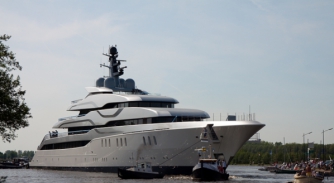
The case of Masters vs USA
Further details have emerged concerning the indictment of Richard Masters
Business
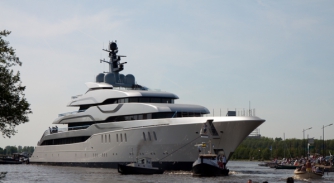
It takes two to tango
The arrest of Richard Masters and Vladislav Osipov for facilitating sanctions evasion has sent shockwaves through the industry
Business
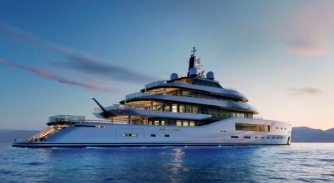
Second Amels 80 sold
Damen Yachting announces the sale of the second Amels 80, with delivery expected in 2026
Fleet
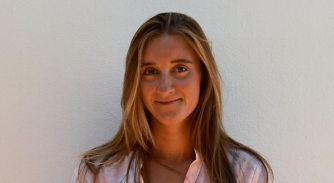
Yachting Ventures’ startup enterprise
Gabriella Richardson explains the story behind her daring venture
Business
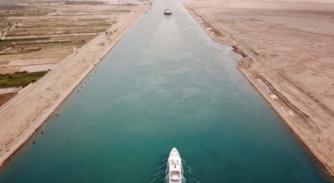
BWA Yachting to open offices in Egypt
BWA to offer full services to superyachts transiting the Suez Canal and cruising the Red Sea
Crew
Related news
The case of Masters vs USA
3 years ago
It takes two to tango
3 years ago
Second Amels 80 sold
3 years ago
Yachting Ventures’ startup enterprise
3 years ago
BWA Yachting to open offices in Egypt
3 years ago
NEW: Sign up for
SuperyachtNewsweek!
Get the latest weekly news, in-depth reports, intelligence, and strategic insights, delivered directly from The Superyacht Group's editors and market analysts.
Stay at the forefront of the superyacht industry with SuperyachtNewsweek




